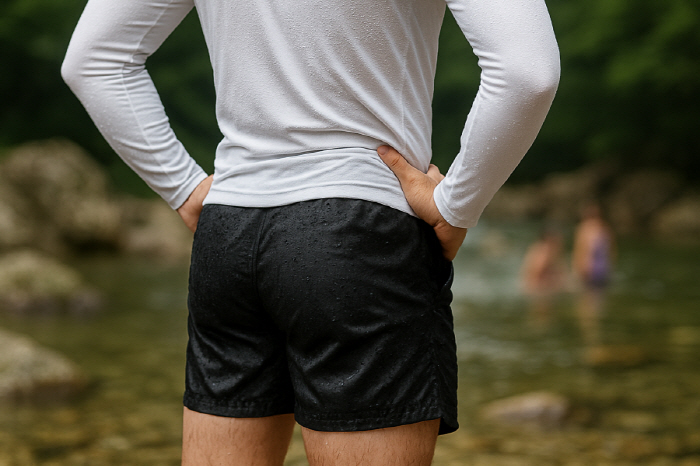I was wearing a wet swimsuit, and I got a urinary tract infection...Causes of bacterial influx after sex
May 22, 2025
|
Urinary tract infection refers to an infection that occurs in the urine passage 'urinary tract', from the kidney (renal) that produces urine to the urethra where urine comes out of the body. Wearing wet swimsuits for a long time after playing in the water encourages bacterial reproduction in humid environments, increasing the risk of infection.
Professor Jeon Byung-jo of the Department of Urology at Korea University Ansan Hospital explained, "Wet swimsuits themselves do not provide causative bacteria, but they can act as risk factors for infection because they create conditions that are easy for bacteria to penetrate and multiply."
The number of patients with urinary tract infection tends to increase in summer, which is the result of a combination of environmental, physiological, and lifestyle factors. In summer, when the temperature rises, a lot of sweat decreases the body's moisture, and the amount of urine decreases. In the end, if the amount of urine decreases, there is a greater concern that bacteria in the urinary tract will not wash off and stay for a long time to multiply.
In fact, one study analyzed health insurance sample data of about 1.13 million people in Korea and found that the risk of emergency room visits from urinary tract infections increased by 6% in the overall sample population and 12% in women when summer temperatures rose by 20%.
Urinary tract infections are classified as lower and upper urinary tract infections depending on the site of infection. Infection in the bladder where urine gathers and the urethra, which is a passage through which urine is discharged out of the body, is called lower urinary tract infection. This is mainly the case with cystitis, and when a lower urinary tract infection occurs, pain may be felt when urinating, or stiff pain may be accompanied in the lower abdomen or lower pelvis when standing still. Frequent urination and poor residual urination after urination are also major symptoms.
Upper urinary tract infection is an infection that occurs in the kidneys that make urine and the ureter, which is a passage through which urine moves to the bladder. When an upper urinary tract infection occurs, systemic symptoms such as fever and nausea are accompanied, and there is a possibility that it may progress to severe infection. For this reason, the treatment period is longer than that of the lower urinary tract infection. Pyelonephritis in the kidneys and pyelonephritis corresponds to upper urinary tract infection.
The most common causative agent of urinary tract infection is E. coli. It is mainly caused by the invasion of the urethra by E. coli in one's intestine. The main reasons are problems with hygiene habits such as improper perineal cleanliness and frequent urination. In addition, women have a short urethral length and close to the anus, which makes it easy for E. coli to invade, and bacteria often enter the urethra after sexual intercourse, leading to infection. Indirect causes are behaviors that create an environment where bacteria are easy to multiply, such as wearing wet swimsuits for a long time.
Urinary tract infection is a disease that can be cured if diagnosed early and treated appropriately. Urinalysis checks for infection and causative bacteria and treats them by administering appropriate antibiotics.
Professor Jeon advised "Take antibiotics as long as they are prescribed, and if symptoms disappear, they may recur or develop drug resistance." In order to prevent urinary tract infection, it is important not only to change into dry underwear after playing in the summer, but also to practice small things in daily life such as frequent water intake and hygiene management, wiping from front to back after defecation, and urination after sex, he explained.
|
This article was translated by Naver AI translator.















